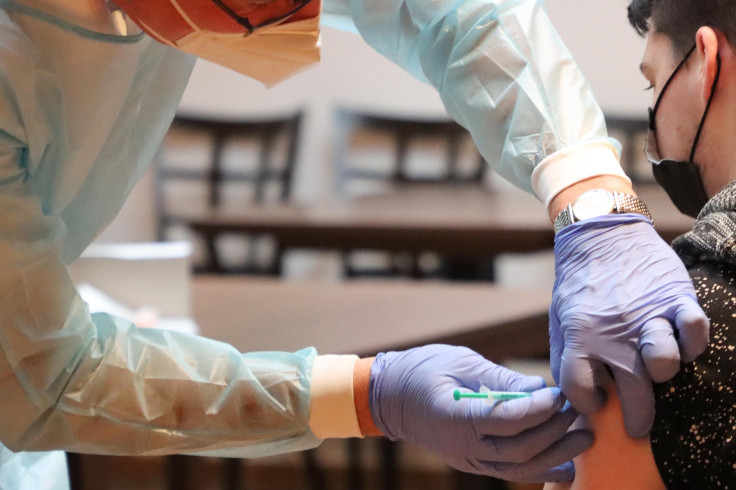
NHS rolled out its flu jab programme in preparation for winter's flu season, yet some groups have to avoid taking the shots or take precautions if they want to be vaccinated.
The flu vaccines are used as a protection against influenza, a type of virus that can be deadly to specific populations. It is often provided by the NHS every autumn or during the early weeks of winter to those who have a higher risk of severe complications.
According to the UK Health Security Agency's announcement on X (formerly Twitter), there are six main groups that qualify to get their flu vaccination starting 1 October this year.
Booking is now open for your free NHS flu vaccination. 💉
— UK Health Security Agency (@UKHSA) September 4, 2025
Check if you’re eligible and book online or via the NHS App for appointments from 1 October. 📅
🔗 https://t.co/tsNYVebRbQ pic.twitter.com/5dLdScTU9p
The specified groups include adults aged 65 and above, those between the ages of 18 to under 65 diagnosed with certain long-term health conditions, residents of care homes, main carers of elderly or disabled individuals or those who receive carer's allowance, those living with immunocompromised persons and frontline health and social care workers.
Meanwhile, younger people started getting their flu jabs since 1 September, including primary school-aged children, secondary school-aged children, all children from six months to under 18 years old who belong to clinical risk groups, pregnant women, kids aged two or three years old by 31 August 2025 and kids with specific long-term health conditions aged six months to less than 18.
Who Should Skip the Jab?
The NHS also added other information about who can get their vaccines before the next winter season.
'Most people who are eligible for the flu vaccine can have it. You only cannot have the vaccine if you've had a serious allergic reaction (anaphylaxis) to a previous dose of the vaccine or an ingredient in the vaccine. Some of the flu vaccines used in the UK contain egg protein. Tell the person vaccinating you if you have an egg allergy,' NHS noted on their website.
The government agency reiterated the importance of getting flu vaccines, as well as COVID-19 vaccines, in preparation for the winter season.
According to the NHS, recent data show indications of higher numbers of flu cases in the country. They also noted that cases of COVID-19 have been increasing steadily for weeks.
'The increase follows the emergence of the XFG variant in May. UKHSA has also reported a 50% increase in rhinovirus, which causes the common cold – likely driven by the return of schools after the summer break,' the agency stated.
Ramped Up Winter Vaccination Plans
The NHS plans to implement a tougher approach to the winter season since they expect to record more winter-related illnesses this year.
'Regional teams across the country are working to make it as easy as possible for people to receive their vaccines – like hosting mobile vaccination buses to deliver vaccines closer to home, running family drop-in sessions in the community, and for the first time ever delivering flu vaccines to two- and three-year-olds in some community pharmacies,' the agency also said.
National Director for Primary Care and Community Services at NHS England reminded Brits to take the flu shot and the COVID-19 vaccine.
'Get vaccinated today to protect yourself and others around you, it might keep you out of hospital this winter,' she stated.







